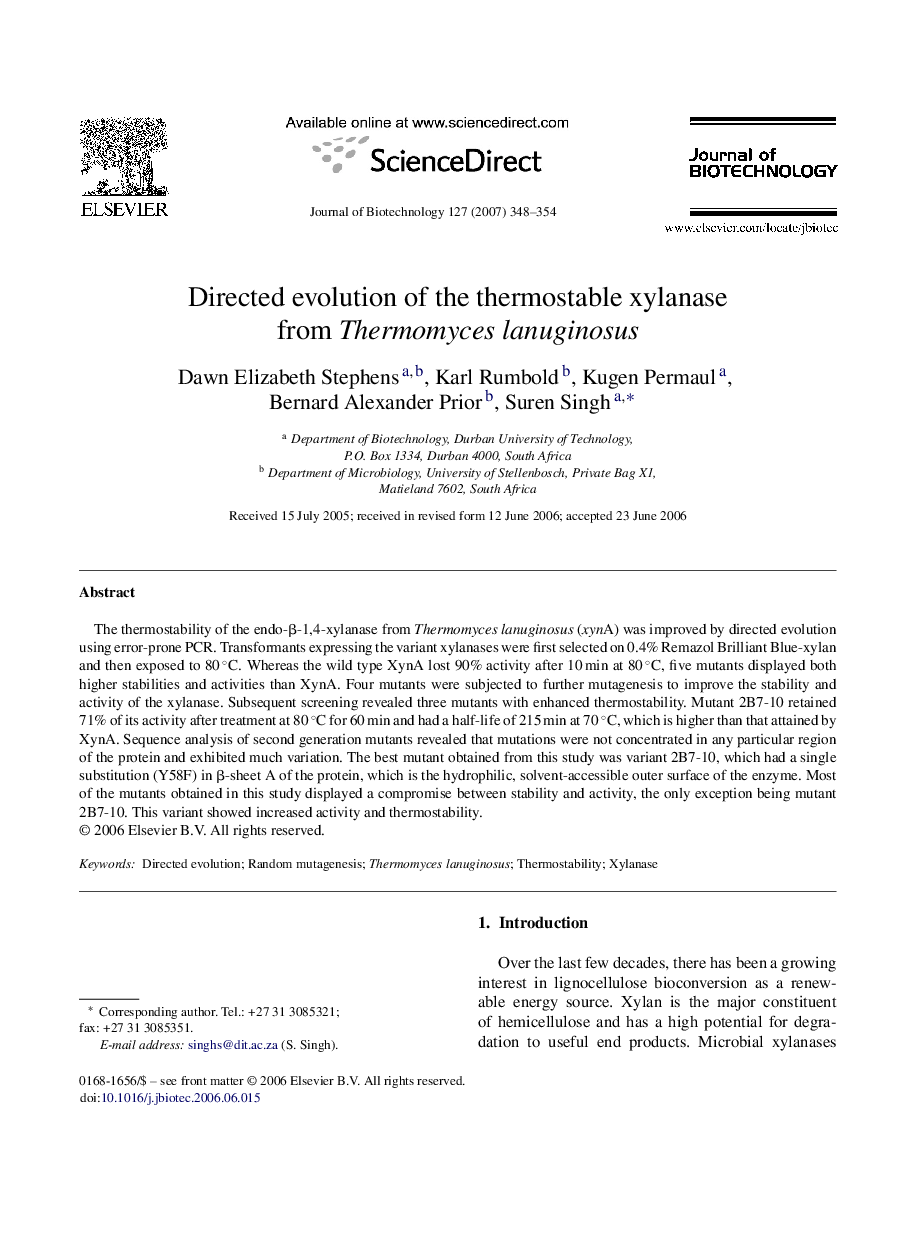| Article ID | Journal | Published Year | Pages | File Type |
|---|---|---|---|---|
| 25473 | Journal of Biotechnology | 2007 | 7 Pages |
The thermostability of the endo-β-1,4-xylanase from Thermomyces lanuginosus (xynA) was improved by directed evolution using error-prone PCR. Transformants expressing the variant xylanases were first selected on 0.4% Remazol Brilliant Blue-xylan and then exposed to 80 °C. Whereas the wild type XynA lost 90% activity after 10 min at 80 °C, five mutants displayed both higher stabilities and activities than XynA. Four mutants were subjected to further mutagenesis to improve the stability and activity of the xylanase. Subsequent screening revealed three mutants with enhanced thermostability. Mutant 2B7-10 retained 71% of its activity after treatment at 80 °C for 60 min and had a half-life of 215 min at 70 °C, which is higher than that attained by XynA. Sequence analysis of second generation mutants revealed that mutations were not concentrated in any particular region of the protein and exhibited much variation. The best mutant obtained from this study was variant 2B7-10, which had a single substitution (Y58F) in β-sheet A of the protein, which is the hydrophilic, solvent-accessible outer surface of the enzyme. Most of the mutants obtained in this study displayed a compromise between stability and activity, the only exception being mutant 2B7-10. This variant showed increased activity and thermostability.
